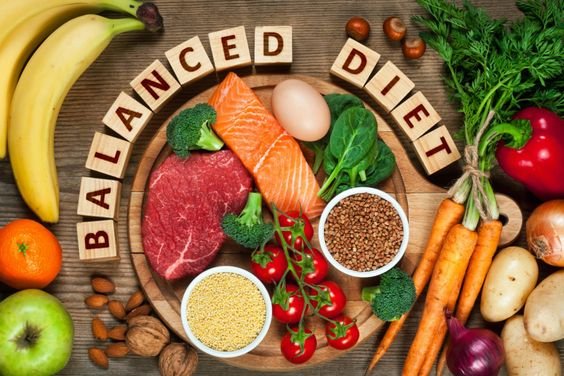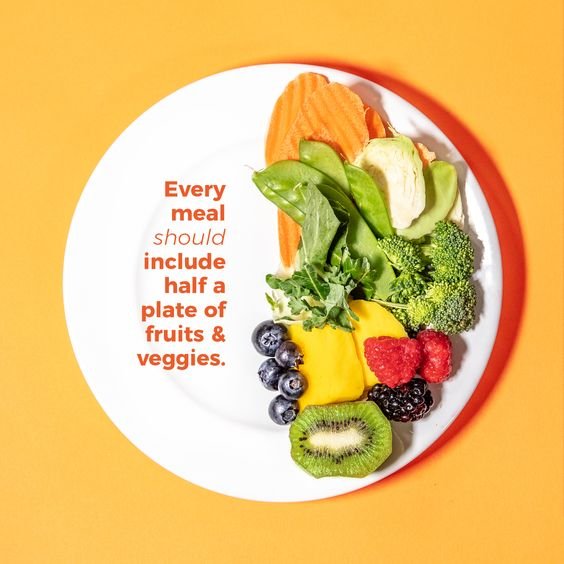
Nutrition is the science that explores the relationship between food and the functioning of our bodies. It encompasses the study of nutrients, which are substances found in food that our bodies need for growth, development, and maintenance of health. These nutrients include carbohydrates, proteins, fats, vitamins, minerals, and water. Through the process of digestion, our bodies break down food into its component nutrients, which are then absorbed into the bloodstream and distributed to cells throughout the body. Nutrients serve various essential functions, such as providing energy, building and repairing tissues, regulating bodily processes, and supporting immune function. A balanced diet is crucial for optimal health, as it ensures that we obtain the necessary nutrients in the right proportions. Different foods offer different combinations of nutrients, so it’s important to eat a variety of foods from all the major food groups, including fruits, vegetables, grains, protein-rich foods, and dairy or dairy alternatives. Poor nutrition can lead to various health problems, including malnutrition, obesity, heart disease, diabetes, and certain types of cancer. Therefore, making informed food choices and maintaining a healthy diet is essential for promoting overall well-being and reducing the risk of chronic diseases.
Eat a Variety of Foods:
Eating a variety of foods from all food groups is essential for maintaining overall health and well-being. Each food group offers a unique set of nutrients that our bodies need to function optimally. By incorporating a diverse range of foods into our diet, we ensure that we obtain all the necessary vitamins, minerals, proteins, carbohydrates, and fats needed for various bodily functions. Starting with fruits and vegetables, these food groups are rich in vitamins, minerals, antioxidants, and fiber. Different fruits and vegetables offer different combinations of nutrients, so it’s important to consume a variety of colors and types. For example, leafy greens like spinach and kale are excellent sources of vitamin K, while citrus fruits like oranges provide ample vitamin C. Consuming a rainbow of fruits and vegetables ensures that you’re getting a wide array of nutrients beneficial for immune function, digestion, and overall health. Grains are another important food group that provides carbohydrates, fiber, vitamins, and minerals. Whole grains like brown rice, quinoa, and oats are particularly nutritious, offering complex carbohydrates that provide sustained energy and fiber that aids in digestion and helps regulate blood sugar levels.Protein sources, such as lean meats, fish, eggs, beans, nuts, and seeds, are vital for building and repairing tissues, synthesizing hormones and enzymes, and supporting a healthy immune system. Each protein source offers a unique profile of essential amino acids, so consuming a variety ensures that you’re meeting your body’s needs for protein and essential nutrients. Dairy products and dairy alternatives provide calcium, vitamin D, protein, and other essential nutrients important for bone health, muscle function, and overall growth and development. Dairy alternatives like fortified soy milk or almond milk can be suitable options for those who are lactose intolerant or following a plant-based diet. By including a wide range of foods from all food groups in your diet, you not only ensure that you’re meeting your nutritional needs but also enhance the flavor and enjoyment of your meals. Variety also reduces the risk of nutrient deficiencies and promotes a balanced intake of essential nutrients, ultimately supporting overall health and well-being.

Portion Control:
Portion control is a fundamental aspect of maintaining a healthy diet and managing weight effectively. It involves being mindful of the amount of food you consume at each meal or snack. Even when consuming nutritious foods, such as fruits, vegetables, lean proteins, and whole grains, eating excessive portions can lead to consuming more calories than your body needs, ultimately resulting in weight gain over time. One effective strategy to practice portion control is to pay close attention to serving sizes. Many people often underestimate the appropriate portion sizes of foods, leading them to consume larger portions than necessary. Using smaller plates, bowls, and utensils can help trick the mind into perceiving larger portions, thus promoting feelings of satisfaction with smaller amounts of food. When the plate or bowl appears full, it can psychologically signal to the brain that you’ve consumed a substantial amount, even if the actual quantity of food is smaller. Additionally, reducing the size of your utensils, such as using smaller forks and spoons, can slow down your eating pace, giving your body more time to register feelings of fullness. This can prevent overeating and allow you to better gauge when you’ve had enough to eat. It’s also essential to be mindful of portion sizes when dining out or consuming packaged foods. Restaurants often serve oversized portions, which can contribute to overeating. Asking for a smaller portion or sharing a meal with a friend can help control portion sizes when dining out. Similarly, when consuming packaged foods, reading nutrition labels and paying attention to serving sizes can help you avoid inadvertently consuming larger portions than intended. Practicing portion control does not mean depriving yourself of your favorite foods or strictly adhering to a restrictive diet. Instead, it’s about being mindful of the amount of food you eat and making conscious choices to support your health and well-being. By incorporating smaller plates, bowls, and utensils into your meals, paying attention to serving sizes, and listening to your body’s hunger and fullness cues, you can effectively manage portion sizes and maintain a healthy weight over time.

Balanced Diet:
A balanced diet is a foundational aspect of maintaining good health and well-being. It refers to consuming a wide variety of foods from different food groups in appropriate proportions to provide the necessary nutrients and energy for the body to function optimally. First and foremost, a balanced diet emphasizes the inclusion of fruits and vegetables. These are rich sources of essential vitamins, minerals, antioxidants, and dietary fiber. Fruits and vegetables come in a myriad of colors, each indicative of different nutrients they contain. For instance, dark leafy greens like spinach and kale are abundant in vitamins A, C, and K, as well as minerals like iron and calcium. Meanwhile, brightly colored fruits such as berries, oranges, and mangoes are rich in vitamin C and various phytonutrients. Consuming a diverse range of fruits and vegetables ensures a broad spectrum of nutrients necessary for supporting various bodily functions, including immune function, digestion, and overall vitality. Whole grains are another crucial component of a balanced diet. Unlike refined grains, which have been stripped of their bran and germ layers, whole grains retain these nutritious components, including fiber, vitamins, and minerals. Examples of whole grains include oats, quinoa, brown rice, and whole wheat. These grains provide sustained energy release due to their complex carbohydrate content, along with important nutrients such as B vitamins, magnesium, and iron. Incorporating whole grains into meals helps regulate blood sugar levels, promotes digestive health, and reduces the risk of chronic diseases like heart disease and diabetes. Lean proteins are essential for muscle repair, growth, and overall body function. Sources of lean protein include poultry, fish, tofu, legumes, eggs, and low-fat dairy products. These foods are rich in high-quality protein, as well as important nutrients such as iron, zinc, and B vitamins. Choosing lean cuts of meat and opting for plant-based protein sources like beans and lentils can help reduce saturated fat intake while still meeting protein needs. Including a variety of protein sources in the diet ensures a diverse array of amino acids, the building blocks of protein, which are necessary for cellular repair and synthesis. Healthy fats are another vital component of a balanced diet. While it’s important to limit saturated and trans fats, incorporating sources of unsaturated fats such as nuts, seeds, avocados, and olive oil can have numerous health benefits. Unsaturated fats, particularly omega-3 fatty acids found in fatty fish like salmon and flaxseeds, play a crucial role in heart health, brain function, and reducing inflammation in the body. Including moderate amounts of healthy fats in the diet helps support nutrient absorption, hormone production, and provides long-lasting energy. IN summary, a balanced diet encompasses a diverse range of foods from all food groups, including fruits, vegetables, whole grains, lean proteins, and healthy fats. By incorporating these foods into meals in appropriate proportions, individuals can ensure they receive the necessary nutrients for optimal health and well-being, while also reducing the risk of chronic diseases and promoting overall vitality.

Hydration:
Hydration is a fundamental aspect of maintaining overall health and well-being. Our bodies rely on water for numerous essential functions, making it crucial to consume an adequate amount throughout the day. Water serves as a fundamental component for processes like digestion, nutrient absorption, and temperature regulation, among others. When we drink water, it plays a pivotal role in aiding the digestion process. Water helps break down food in the stomach, facilitating the absorption of nutrients into the bloodstream. It also assists in the movement of food through the digestive tract, promoting regular bowel movements and preventing constipation. Furthermore, proper hydration supports nutrient absorption, as water is involved in transporting vitamins, minerals, and other essential nutrients to cells throughout the body. Without sufficient hydration, these processes may be impaired, potentially leading to deficiencies and health complications. Temperature regulation is another critical function that water supports. When we’re exposed to high temperatures or engage in physical activity, our bodies naturally sweat to cool down. Sweat is primarily composed of water, and through the process of evaporation, it helps dissipate heat from the body. Staying hydrated ensures that an adequate supply of water is available for sweating, helping to regulate body temperature and prevent dehydration and overheating. The general recommendation for daily water intake is often cited as at least eight glasses, or about two liters, per day. However, individual needs can vary based on factors such as age, weight, activity level, climate, and overall health status. For example, those who are physically active or live in hot climates may require more water to compensate for increased fluid loss through sweat. It’s essential to listen to your body’s signals and drink water whenever you feel thirsty. Additionally, paying attention to urine color can provide insight into hydration status; ideally, urine should be pale yellow in color. Darker urine may indicate dehydration, signaling the need to increase fluid intake.

Plan and Prepare Meals:
Planning and preparing meals ahead of time is a proactive approach to maintaining a healthy diet amidst our busy lifestyles. By dedicating a bit of time upfront, we can set ourselves up for success throughout the week. Here’s how it works:
Firstly, meal planning involves deciding what meals you’ll eat for the upcoming days or week. This can be done by browsing recipes, considering dietary needs, and taking inventory of what ingredients you already have on hand. Planning meals in advance allows you to ensure that you’re incorporating a variety of nutrients into your diet and can help you avoid the temptation of opting for less nutritious options when you’re pressed for time. Next, meal preparation involves actually cooking and assembling the components of your meals ahead of time. This could mean chopping vegetables, marinating proteins, or cooking whole dishes that can be portioned out for future consumption. Batch cooking is a popular method where you prepare larger quantities of food at once, which can then be divided into individual servings and stored for later use. This not only saves time during busy weekdays but also reduces the likelihood of resorting to fast food or convenience meals when you’re feeling rushed or tired. By having pre-prepared, healthy options readily available, you’re less likely to succumb to the temptation of unhealthy alternatives. Additionally, having a plan in place can help alleviate the stress and decision fatigue that often accompanies mealtime, making it easier to stick to your nutritional goals. When it comes to meal prep, it’s important to consider food safety practices to ensure that your meals remain fresh and safe to eat throughout the week. This includes proper storage techniques, such as using airtight containers or freezer bags, and labeling items with the date they were prepared. Additionally, it’s important to follow guidelines for reheating precooked meals to ensure they reach a safe internal temperature. IN summary, planning and preparing meals ahead of time is a proactive strategy for maintaining a healthy diet in our busy lives. By taking the time to plan out your meals and prepare them in advance, you can save time, reduce stress, and ensure that you have nutritious options readily available when hunger strikes.

Include Healthy Snacks:
Incorporating healthy snacks into your daily routine is a fantastic way to maintain energy levels, curb hunger between meals, and support overall well-being. When it comes to choosing snacks, opting for nutrient-dense whole foods over processed options high in sugar and unhealthy fats can make a significant difference in your health. One of the primary benefits of healthy snacks is their ability to provide sustained energy throughout the day. Whole foods such as fruits, vegetables, nuts, seeds, yogurt, and whole-grain crackers contain a balanced combination of carbohydrates, protein, and healthy fats. These macronutrients work together to provide a steady release of energy, keeping you feeling satisfied and focused between meals. Fruits and vegetables are excellent choices for snacks because they are packed with essential vitamins, minerals, and antioxidants that support overall health. Additionally, they are low in calories and high in fiber, which helps promote feelings of fullness and aids in digestion. Snacking on a piece of fresh fruit or a handful of raw vegetables can help satisfy cravings while providing valuable nutrients your body needs to function optimally.Nuts and seeds are another fantastic option for healthy snacking. They are rich in protein, healthy fats, fiber, vitamins, and minerals. These nutrient-dense snacks not only help keep hunger at bay but also provide essential nutrients that support heart health, brain function, and immune function. However, it’s essential to practice portion control with nuts and seeds as they are calorie-dense. Yogurt is a versatile snack that offers a good source of protein, calcium, and probiotics. opt for plain Greek yogurt or low-fat yogurt without added sugars. You can enhance the flavor by adding fresh fruit, nuts, or a drizzle of honey for sweetness. Whole-grain crackers can be a satisfying option when paired with protein-rich toppings such as hummus, nut butter, or cheese. Look for crackers made with whole grains like whole wheat, oats, or quinoa, which provide fiber and complex carbohydrates that help keep you feeling full and satisfied.By keeping nutritious snacks readily available, you’re more likely to make healthier choices and avoid reaching for processed snacks that offer little nutritional value and can contribute to weight gain and other health issues. Planning ahead by prepping snacks and keeping them easily accessible can help you stay on track with your health and wellness goals. Whether you’re at home, work, or on the go, having healthy snacks on hand ensures you have nourishing options whenever hunger strikes.

Be Flexible and Enjoy Moderation:
Being flexible and enjoying moderation in your dietary habits is an important aspect of maintaining a healthy relationship with food and achieving overall well-being. Instead of imposing strict rules or depriving yourself of certain foods, it’s beneficial to adopt a mindset that emphasizes balance and moderation. When you allow yourself to enjoy your favorite foods in moderation, you create a more sustainable approach to eating. Deprivation often leads to cravings, which can ultimately result in overindulgence or binge eating. By giving yourself permission to enjoy small portions of your favorite treats or indulgent foods, you satisfy those cravings without derailing your overall dietary goals. Additionally, practicing moderation allows you to appreciate and savor the foods you love without guilt or shame. Enjoying a piece of cake or a serving of ice cream becomes a pleasurable experience rather than something to feel guilty about. This positive attitude towards food fosters a healthier mindset and reduces the likelihood of developing disordered eating patterns. Furthermore, being flexible with your food choices can enhance your overall enjoyment of meals and social experiences. Instead of rigidly adhering to a restrictive diet, you have the freedom to partake in a variety of foods and cuisines, making dining out or sharing meals with friends and family more enjoyable. This flexibility also makes it easier to navigate special occasions or unexpected events without feeling stressed or anxious about deviating from your usual eating patterns. Incorporating balance and moderation into your dietary approach also supports your physical health. Rather than focusing solely on restriction or elimination, you prioritize nourishing your body with a variety of nutrients from different food groups. This balanced approach ensures that you’re meeting your nutritional needs while still allowing room for occasional indulgences. Overall, embracing flexibility and moderation in your relationship with food can lead to greater satisfaction, improved mental and emotional well-being, and long-term success in maintaining a healthy lifestyle. By prioritizing balance and enjoyment, you create a sustainable approach to eating that nourishes both your body and your mind.

